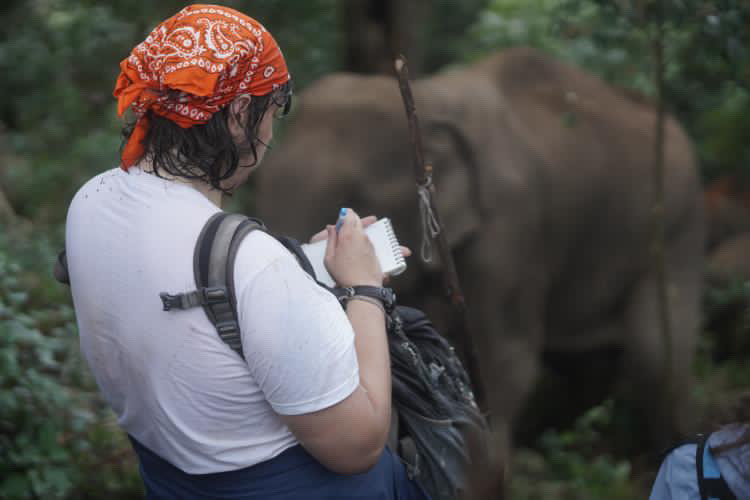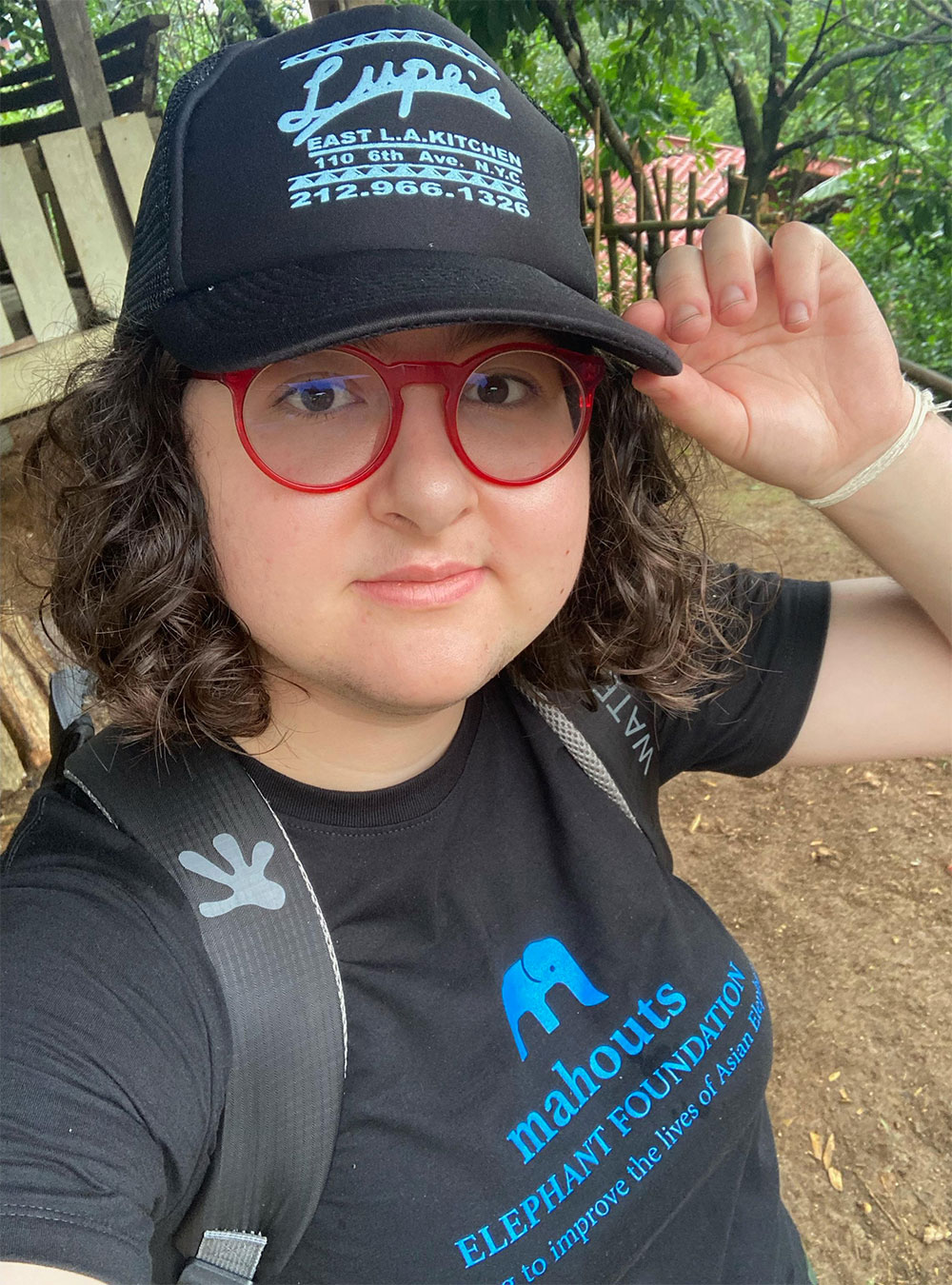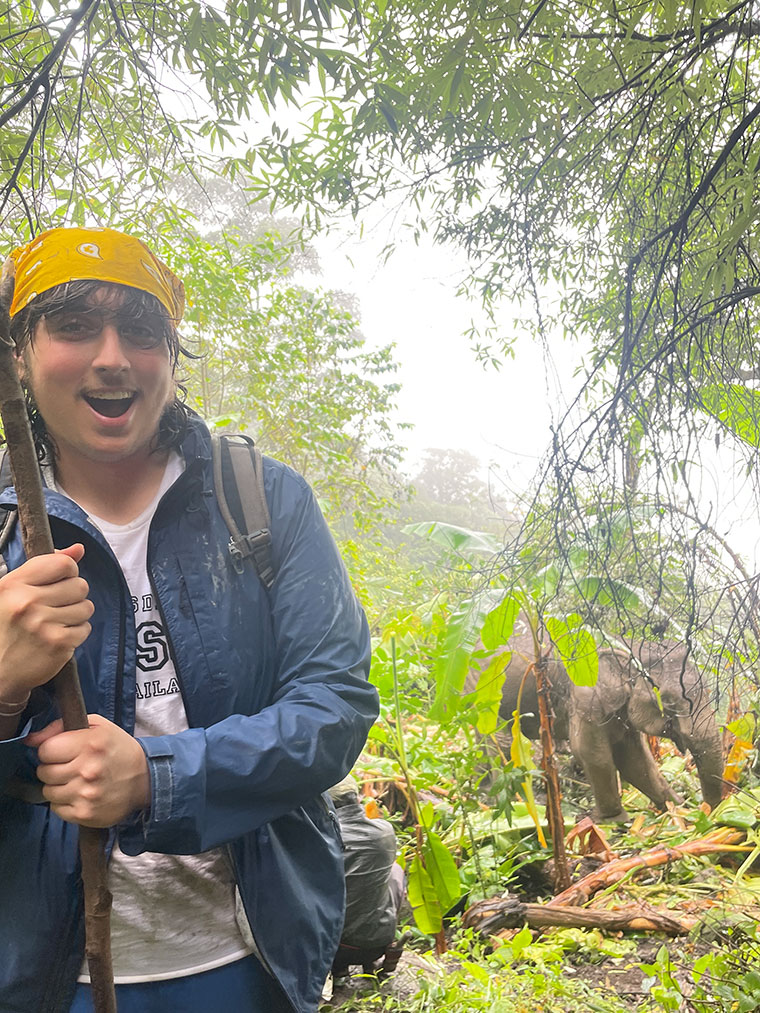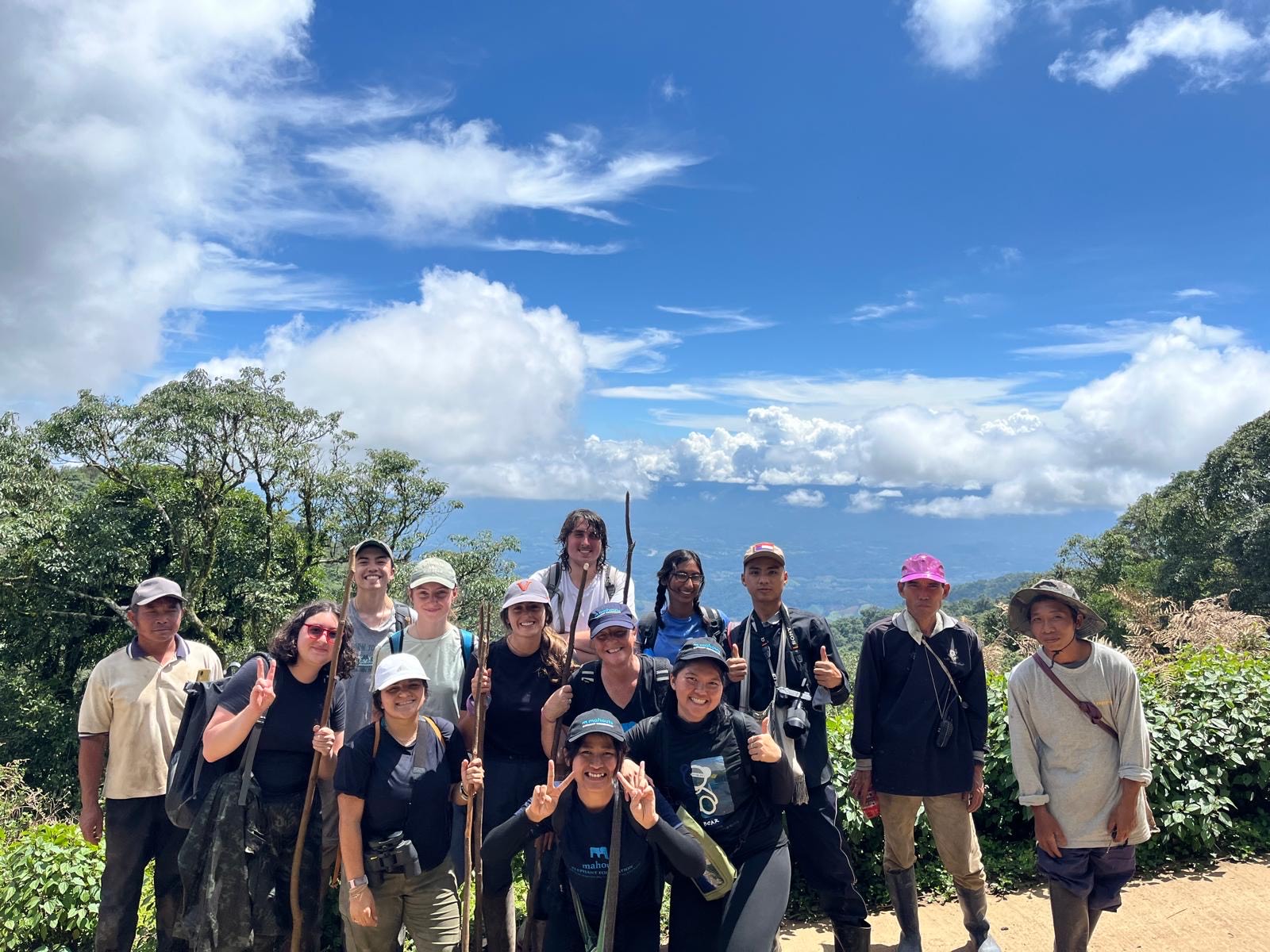Filed under:

In the summer of 2024, two Sarah Lawrence students spent a month observing wild elephants in the mountains of Thailand. One a writer, the other studying art history, both let their fascination with animals guide them to a life-changing experience abroad — the kind of transformational experience that is central to a Sarah Lawrence education.
Through SLC’s interdisciplinary curriculum, which offers 50 areas of study and no required courses, Isabelle Pass ’26 and Ignatius Gathman ’26 chose the student-favorite biology course “Animal Behavior” taught by Dr. Liv Baker. Students note Baker’s ethic of care and consideration, which supports her research, as well.
 “Liv understands different people have different stories and finds ways to work with this," said Pass, whose conference project for the course was a short story told from the perspective of a human and a dolphin; Gathman's project focused on observing sea lions at all five NYC zoos. Both students' interest in animal observation was piqued, and Baker encouraged them to consider spending a summer month in Thailand studying elephants with her.
“Liv understands different people have different stories and finds ways to work with this," said Pass, whose conference project for the course was a short story told from the perspective of a human and a dolphin; Gathman's project focused on observing sea lions at all five NYC zoos. Both students' interest in animal observation was piqued, and Baker encouraged them to consider spending a summer month in Thailand studying elephants with her.
As Research Director of Mahouts Elephant Foundation and Chair of PAN Works — both organizations dedicated to promoting animal wellbeing at the intersection of human-animal-nature relationships — Baker leads a small group of college students to Thailand for a month-long “Asian Elephant Animal Behavior and Conservation” field course each summer. Students learn field research protocols and the fundamentals of recording and interpreting animal behavior. They also collaborate closely with indigenous mahouts (elephant guardians) and their community as they work to conserve the forest.
“I want students to understand how a multispecies approach to conservation helps animals, the environment, and human health and well-being,” Baker said.
 Days began early in Thailand. Pass and Gathman met the rest of the group — and any locals who needed a ride — at 8 a.m. to take trucks to the trailhead. “There was a lot of bouncing over potholes, a lot of falling on people,” Gathman said. Then they would hike 30-60 minutes into the forest to study the elephants. “I observed the trunk behavior of the female elephants with offspring. The mothers would gather dirt with their trunks to clean themselves and their children. The babies would put their trunks in their mouths to self-soothe.” Both students noted the intelligence and care of the elephants towards each other and towards the mahouts.
Days began early in Thailand. Pass and Gathman met the rest of the group — and any locals who needed a ride — at 8 a.m. to take trucks to the trailhead. “There was a lot of bouncing over potholes, a lot of falling on people,” Gathman said. Then they would hike 30-60 minutes into the forest to study the elephants. “I observed the trunk behavior of the female elephants with offspring. The mothers would gather dirt with their trunks to clean themselves and their children. The babies would put their trunks in their mouths to self-soothe.” Both students noted the intelligence and care of the elephants towards each other and towards the mahouts.
The students’ hosts were Karen, an ethnic group that has inhabited the region near the Thailand-Myanmar border for centuries. In the village, they participated in daily tasks, including planting rice, harvesting turmeric, and weaving. They took classes in the community center to learn basic Sgaw Karen and Thai, and were encouraged to spend free time with the community members. “The villagers wanted to know us,” said Gathman. “Even though there was a language barrier, we felt so welcomed.”

Both Gathman and Pass found themselves drawn to this connected way of living, and carried that feeling home with them. “It didn’t feel temporary,” Pass said, “because we accomplished so much and connected so strongly with the community.”
Pass and Gathman plan to continue exploring animal behavior at Sarah Lawrence. Gathman, currently studying art history in the Netherlands, hopes to use the observation skills he developed in Thailand with a new interest: beekeeping. Pass took another course with Baker and relishes the exploration. “I’m super happy to be on this path with animal behavior and conservation. I’m excited to see where it leads.”
Think beyond convention and explore areas of study at Sarah Lawrence College.